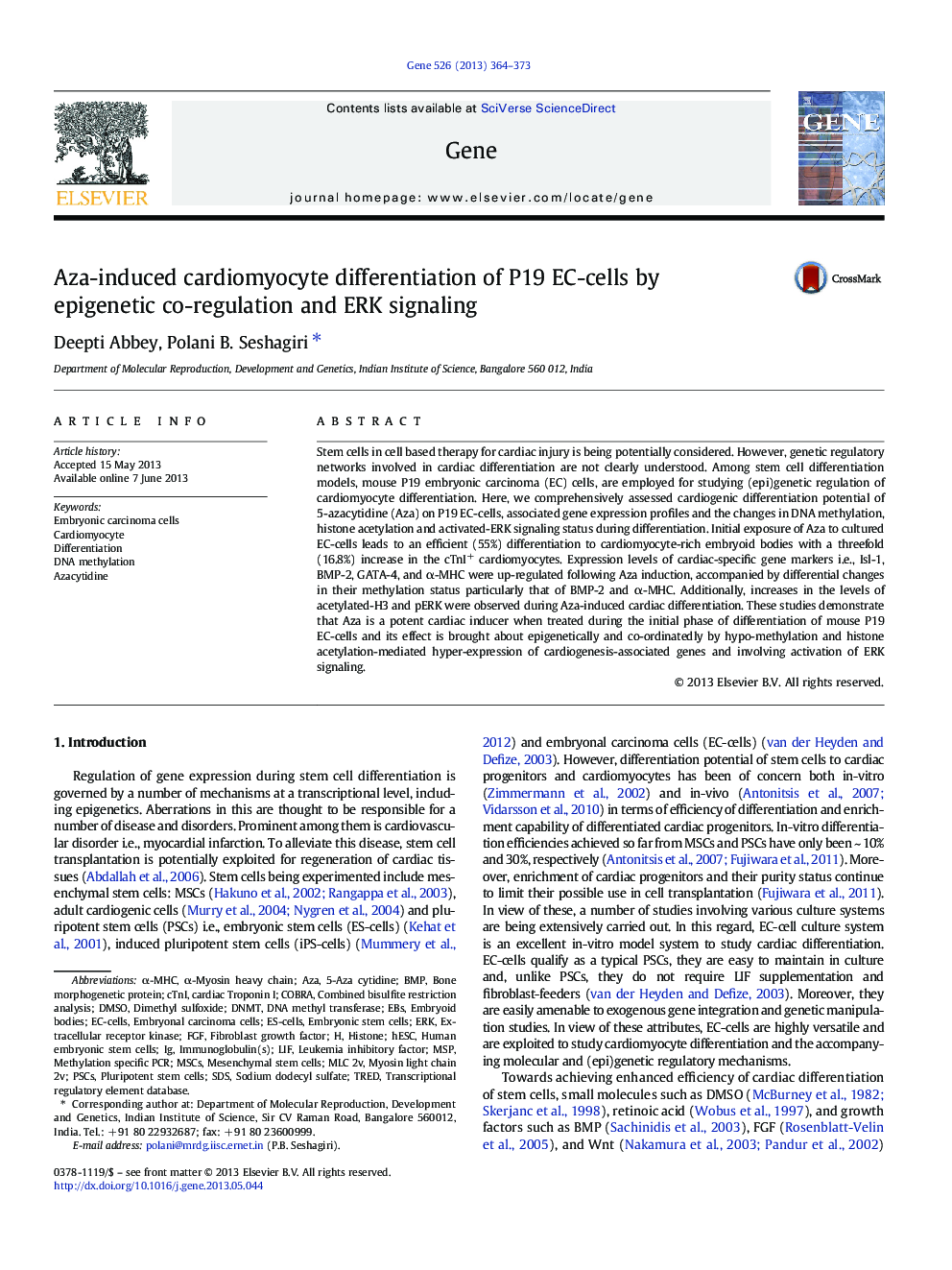| کد مقاله | کد نشریه | سال انتشار | مقاله انگلیسی | نسخه تمام متن |
|---|---|---|---|---|
| 5906416 | 1159970 | 2013 | 10 صفحه PDF | دانلود رایگان |

- Aza induces cardiac differentiation of EC-cells and changes in gene expression.
- DNA methylation of cardiac genes, in particular BMP2 and αMHC, is involved.
- Histone acetylation of H3 and activation of pERK are involved.
- Epigenetic mechanisms are responsible for cardiac differentiation of PSCs (EC-cells).
Stem cells in cell based therapy for cardiac injury is being potentially considered. However, genetic regulatory networks involved in cardiac differentiation are not clearly understood. Among stem cell differentiation models, mouse P19 embryonic carcinoma (EC) cells, are employed for studying (epi)genetic regulation of cardiomyocyte differentiation. Here, we comprehensively assessed cardiogenic differentiation potential of 5-azacytidine (Aza) on P19 EC-cells, associated gene expression profiles and the changes in DNA methylation, histone acetylation and activated-ERK signaling status during differentiation. Initial exposure of Aza to cultured EC-cells leads to an efficient (55%) differentiation to cardiomyocyte-rich embryoid bodies with a threefold (16.8%) increase in the cTnI+ cardiomyocytes. Expression levels of cardiac-specific gene markers i.e., Isl-1, BMP-2, GATA-4, and α-MHC were up-regulated following Aza induction, accompanied by differential changes in their methylation status particularly that of BMP-2 and α-MHC. Additionally, increases in the levels of acetylated-H3 and pERK were observed during Aza-induced cardiac differentiation. These studies demonstrate that Aza is a potent cardiac inducer when treated during the initial phase of differentiation of mouse P19 EC-cells and its effect is brought about epigenetically and co-ordinatedly by hypo-methylation and histone acetylation-mediated hyper-expression of cardiogenesis-associated genes and involving activation of ERK signaling.
Journal: Gene - Volume 526, Issue 2, 10 September 2013, Pages 364-373